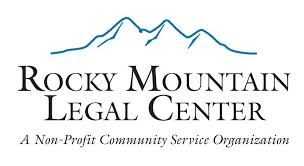Financial challenges can happen to anyone, and sometimes they become overwhelming enough that seeking a fresh start through bankruptcy becomes a viable option. For individuals residing in Boulder County, Colorado, Chapter 7 bankruptcy might offer a path to relief from unmanageable debt. This guide aims to provide a thorough understanding of Chapter 7 bankruptcy, including its benefits, the process involved, and practical advice on how to navigate this legal procedure. Additionally, we’ll highlight resources such as Rocky Mountain Legal Services, where you can seek assistance and guidance.
Understanding Chapter 7 Bankruptcy
Chapter 7 bankruptcy, often referred to as “liquidation bankruptcy,” is designed to eliminate unsecured debts like credit card balances, medical bills, and personal loans. It offers individuals an opportunity to discharge these debts and start anew financially. Unlike Chapter 13 bankruptcy, which involves restructuring debts and developing a repayment plan, Chapter 7 focuses on liquidating non-exempt assets to pay off creditors.
Key Benefits of Chapter 7 Bankruptcy
- Debt Discharge:
The primary benefit of Chapter 7 bankruptcy is the possibility of discharging most unsecured debts, providing individuals with a clean slate and relief from financial burdens. - Speedy Process:
Compared to other bankruptcy chapters, Chapter 7 is relatively quick. Typically, the process is completed within three to six months, allowing individuals to move forward sooner. - Automatic Stay:
Filing for Chapter 7 bankruptcy triggers an automatic stay, which halts most collection activities, including lawsuits, wage garnishments, and creditor harassment. - Retention of Essential Assets:
Colorado’s exemption laws allow individuals to keep certain essential assets, such as a portion of home equity, personal property, and retirement accounts, safeguarding their future.
Steps to Filing Chapter 7 Bankruptcy
- Evaluate Your Financial Situation
Before proceeding with Chapter 7 bankruptcy, it’s crucial to assess your financial circumstances thoroughly. Consider whether bankruptcy is the best solution for your situation or if other alternatives, such as debt consolidation or negotiation, might be viable. - Credit Counseling
The bankruptcy process requires individuals to complete a credit counseling course from an approved agency. This step must be completed within 180 days before filing, ensuring that you explore all potential avenues for debt resolution. - Gather Necessary Documentation
Collect all relevant financial documents, including tax returns, pay stubs, bank statements, and a list of debts and assets. Organizing this information is essential for accurately completing the required bankruptcy forms. - Complete and File Bankruptcy Forms
Filing for Chapter 7 bankruptcy involves completing a series of forms detailing your financial situation, including income, expenses, assets, and debts. Working with a knowledgeable bankruptcy attorney can help ensure accuracy and completeness. - Means Test
The means test determines your eligibility for Chapter 7 bankruptcy by assessing your income against the median income in Colorado. If your income is below the median, you typically qualify for Chapter 7. Otherwise, additional analysis is required to assess eligibility. - Attend the Meeting of Creditors
A meeting of creditors, also known as a 341 meeting, is a mandatory step in the bankruptcy process. During this meeting, you will answer questions from the bankruptcy trustee and any attending creditors about your financial affairs. Preparing thoroughly and being honest is key. - Receive Debt Discharge
Upon successful completion of the necessary steps, eligible debts will be discharged, providing you relief from those obligations. This discharge typically occurs about three months after the 341 meeting.
Common Concerns and Considerations
- Impact on Credit Score
Filing for Chapter 7 bankruptcy will affect your credit score, often significantly. However, it provides an opportunity to rebuild your credit over time. Responsible financial management post-bankruptcy can help improve your credit profile. - Exempt vs. Non-Exempt Assets
Understanding Colorado’s exemption laws is crucial in determining what assets you can retain during bankruptcy. While some assets may be protected, certain non-exempt assets may be subject to liquidation to repay creditors. - Co-Signed Debts
If you have co-signed debts, bankruptcy discharges your obligation but does not affect the co-signer’s liability. This is an important consideration for maintaining relationships and planning for joint financial responsibilities. - Future Financial Planning
Bankruptcy offers a fresh start, but it’s essential to plan for your financial future carefully. Developing a budget, prioritizing savings, and seeking financial education can help prevent future financial difficulties.
Seeking Professional Assistance
Navigating Chapter 7 bankruptcy can be complex, and having professional guidance can make a significant difference in the outcome. Consulting with a qualified bankruptcy attorney can ensure that you understand the process, comply with legal requirements, and make informed decisions. In Boulder County, Rocky Mountain Legal Center is an excellent resource for individuals seeking legal assistance and advice. Their experienced team can provide personalized guidance, helping you through each step of the bankruptcy process. You can reach out to them at Rocky Mountain Legal Center for more information and support.
Conclusion
Chapter 7 bankruptcy can be a powerful tool for individuals in Boulder County, Colorado, seeking relief from overwhelming debt. By understanding the process, evaluating your financial situation, and seeking professional guidance, you can navigate bankruptcy successfully and move towards a more secure financial future.
Remember, bankruptcy is not an end but a new beginning. It offers the chance to rebuild your financial life, free from the burdens of past debts. With careful planning, responsible financial habits, and support from services like Rocky Mountain Legal Services, you can embrace this opportunity and work towards a brighter, more stable future.
